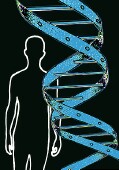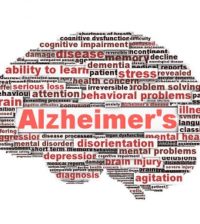- How Bad Was Beethoven’s Lead Poisoning?
- Big Rise in Emergencies Involving Synthetic Weed Among Kids, Adults
- How Mindfulness Could Help Folks Quit Opioids
- Candy Company Recalls Products Due to Salmonella Risk
- Study Finds Heart Damage in ‘Couch Potato’ Kids
- Helping Your Child Make Friends With a Child With Autism
- Planters Peanut Products Under Recall Due to Listeria Risk
- That ‘New Car Smell’ Could Be Toxic Carcinogens
- Gene Discovery Points to a New Form of Alzheimer’s
- Scientists May Have Located Your Brain’s ‘Neural Compass’
Scientists Make Gene Discovery in Lou Gehrig’s Disease


A new gene mutation associated with amyotrophic lateral sclerosis — also known as ALS or Lou Gehrig’s disease — has been identified in a study led by the U.S National Institute on Aging (NIA).
ALS is a fatal degenerative condition that kills nerve cells, resulting in weakness and paralysis. Patients typically die from respiratory failure. About 10 percent of ALS patients have a directly inherited form of the disease, according to the NIA.
In the study, published online March 30 in Nature Neuroscience, researchers analyzed DNA from families with several members who’d been diagnosed with ALS. The analysis revealed that a number of people in those families had a mutation in a gene called Matrin 3.
The investigators also discovered that Matrin 3 interacts with a protein that binds to RNA and whose mutation is known to cause ALS, according to the study published online March 30 in Nature Neuroscience.
“The identification of this gene mutation gives us another target to explore in the [development] of this disease,” senior author Dr. Bryan Traynor, of the laboratory of neurogenetics at the NIA, said in an agency news release.
“It also provides additional evidence that some disruption in RNA metabolism, an essential process within all cells, is involved in neuron death in ALS,” he added.
Each year, about 6,000 Americans die from ALS.
More information
The U.S. National Institute of Neurological Disorders and Stroke has more about ALS.
Source: HealthDay
Copyright © 2024 HealthDay. All rights reserved.










